Clark High students semifinalists in international STEM competition
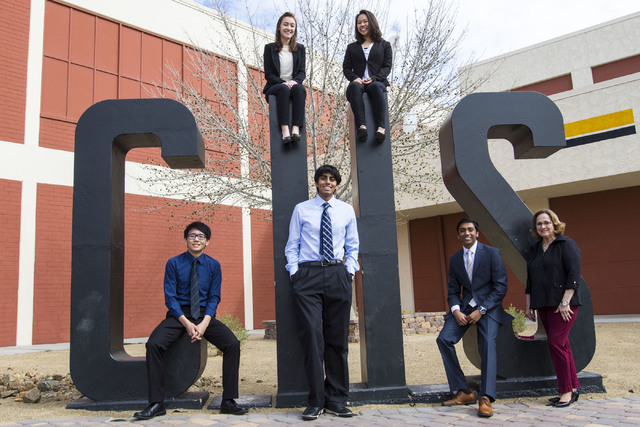
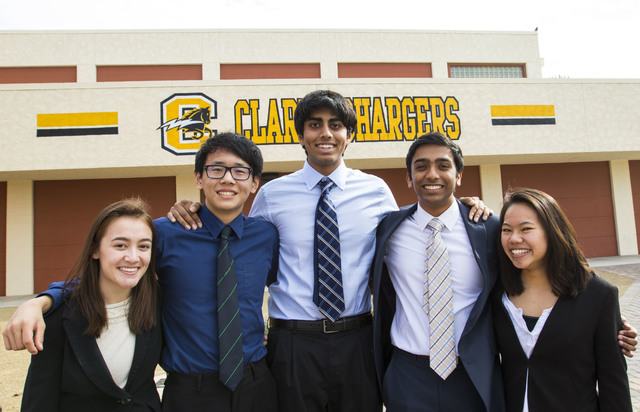
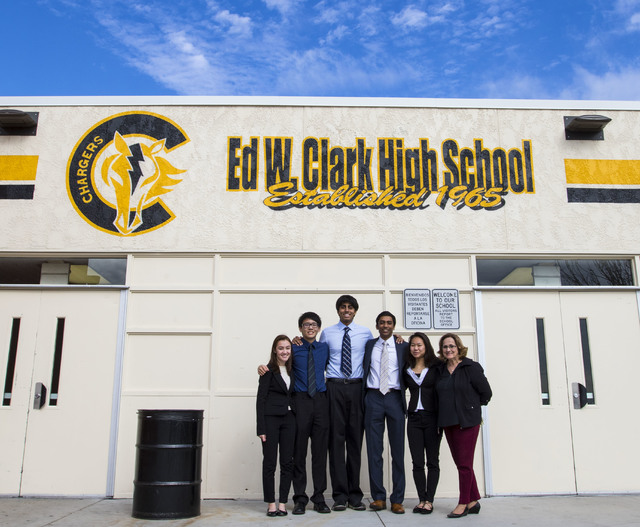
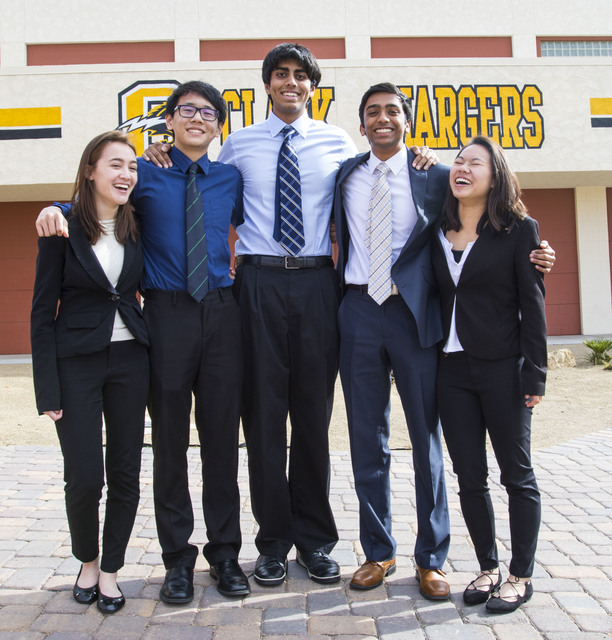
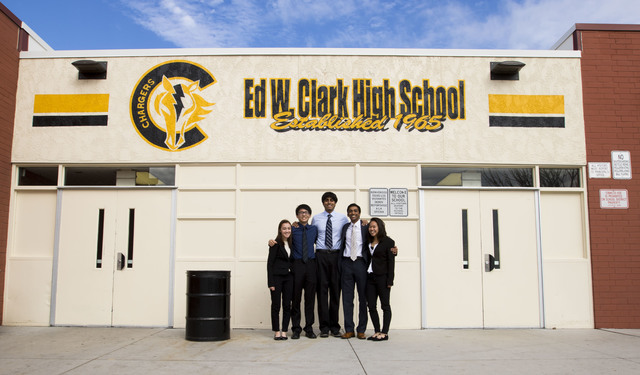

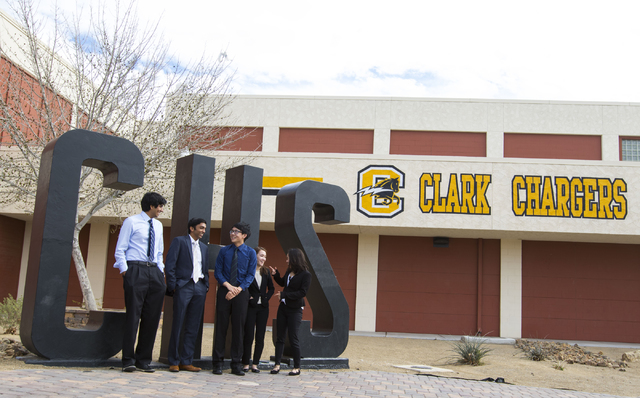
A group of Clark High School juniors spent winter break contemplating a lofty goal.
“We sat around the table and talked about what we could fix in the world,” said Andy Wang, 16.
The students are semifinalists in an international STEM (science, technology, engineering and math) competition called the Conrad Spirit of Innovation Challenge. Participants are students ages 13 to 18 who work in teams of two to five to develop a product aimed at creating a sustainable world.
They aim to become the Clark County School District’s first winners of the competition, which has contestants from 19 states and 12 countries including New Zealand, Thailand, Israel and Canada, according to organizers. Kristin Kleven of the Conrad Foundation calls it “’Shark Tank’ for kids.”
Lauryn Tsai, 16, said she discovered the competition online and put together a team of five students.
Aakash Shah, 17; Andy Wang, 16; Denise Castle, 17; Shan Reddy, 16; and Tsai enrolled in the competition as the Clark Battery Chargers. The students met during their freshman year in Clark’s AMSAT (Academy of Mathematics, Science, Arts and Technology) classes.
Tsai said she thought the group had a chance of winning.
“We’re all really good friends, and when I think of the smartest people that I know, I think of them, as well as the most hardworking,” Tsai said.
Teams can select from four categories: aerospace and aviation, cyber technology and security, health and nutrition, and energy and environment, which is what the Clark Battery Chargers focused on.
“We know that we are not going to be able to sustain or have a sustainable environment for much longer with our current energy-production systems, and we felt that in order for future generations to be able to have the same opportunities like everyone else, we must create something that allows a sustainable form of energy,” Shah said.
With this in mind, the students created the Nero Battery, a sustainable alternative to fossil fuels in place of the modern energy grid system.
“It’s essentially a battery that generates energy from natural temperature fluctuations,” Reddy said. “During the day, the internal core of the battery melts, and at night, when the temperature is cold, it freezes and expands, and it’s this expansion that generates energy.”
The Nero Battery also has a graphene outer compartment for the battery, which is a super-capacitor.
“Graphene has a very high service area when it’s activated, which is why it’s a really good material to hold energy,” Wang said.
“The traditional grid energy-storage system is inefficient and doesn’t really contain energy and transfer energy as fast, but graphene can discharge and charge at a much higher rate, which is why it is our preferred material,” he added.
The students said the Nero Battery would make energy distribution and storage more efficient. It also introduces a clean energy-production system.
The Clark Battery Chargers contacted professionals at UNLV and a teacher at their school, Nicholas “Chuck” Bean, for advice.
“There wasn’t really any research done on this topic in the past,” Reddy said. “It was kind of a new idea. So we wanted to make sure that the physics was actually feasible.”
The students explained the idea in a short video (less than two minutes) and in a set of questions in the first round of the competition. They advanced to the second round as semifinalists with about 50 other teams.
In the second round, contestants are asked to expand informative video about their product or service to five minutes and to write a 30-page business plan to support their idea. Eight teams from each category will be chosen as finalists and will present at the Innovation Summit from April 27-29 at the Kennedy Space Center visitors complex in Florida.
Finalists will compete to be recognized as Pete Conrad Scholars and to receive awards from sponsors such as NASA and the Navy. Possible awards include seed funding grants, investment opportunities, patent support, business services and scholarships, according to the Conrad Foundation’s website.
The Clark Battery Chargers asked their magnet coordinator, Shirley McLees-Kaplan, to be their adviser.
“I really felt when I saw this project that it was something that could be patented and produced, so I was happy to help them,” she said.
The students have given their personal time to compete. Shah also is on Clark’s state varsity tennis team, is active in DECA and is co-captain of the chess team. Wang is the individual state champion for Clark’s swim team and is active in the National Honor Society. Castle is on Clark’s varsity soccer team and is involved in Health Occupations Students of America, NHS and DECA. Tsai is on the varsity swim team and also participates in HOSA and NHS. Reddy is the editor in chief of the school newspaper, is on the varsity tennis team and is a member of the Science Olympiad.
Asked how they make time for everything, the students agreed with Reddy, who said, “We just took it away from our sleep schedule.”
The students learned Feb. 17 that they would advance to the final round at the Innovation Summit.
To reach View intern reporter Kailyn Brown, call 702-387-5233 or email kbrown@viewnews.com. Follow her on Twitter: @KailynHype.












